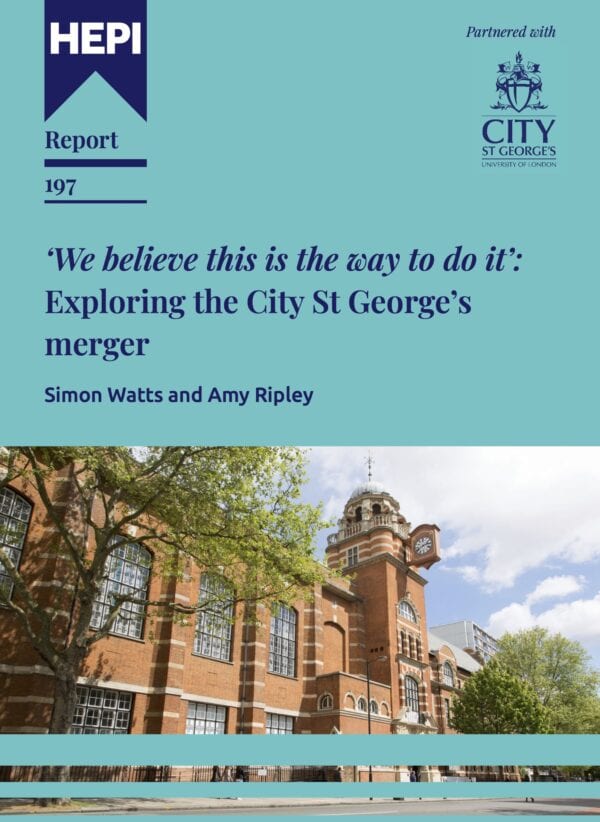Skills and employability: embedding to uncovering
- The blog below was kindly authored for HEPI by Claire Toogood, Research and Strategic Projects Manager at AGCAS.
- Elsewhere, Nick Hillman, HEPI’s Director, has responded to the Post-16 Education and Skills White Paper in a piece for Times Higher Education.
In recent years, UK higher education has made significant strides in embedding employability into the curriculum. From frameworks and toolkits to strategic initiatives, the sector has embraced the idea that employability is not an add-on, but a core element and outcome of any academic course. Yet, as the new Uncovering Skills report reveals, embedding is only part of the story. A future challenge, and significant opportunity for impact, lies in helping students uncover, recognise, and articulate the skills they are already developing.
This project, led by AGCAS and supported by Symplicity, draws on three national datasets, including focus groups, event survey data, and applications to the inaugural Academic Employability Awards. It builds on foundational work such as Kate Daubney’s concept of “Extracted Employability” which reframed employability as something inherent in academic learning, not externally imposed. Alongside sector-wide efforts like the AGCAS Integrating Employability Toolkit and Advance HE’s embedding employability framework, and institutional contributions like Surfacing Skills and Curriculum Redefined at the University of Leeds, Daubney’s work lays the groundwork for a more inclusive and intentional approach to employability.
The latest findings from the Uncovering Skills project suggest that visibility, confidence, and perceived relevance remain major barriers. Students often struggle to recognise the value of their informal experiences (such as part-time work, caring responsibilities, and volunteering) and they can lack the language to describe these in employer-relevant terms. As one focus group participant noted, ‘Students often think if it’s not linked to their degree then it is not relevant.’ Another added, ‘They disregard skills gained from everyday life – like being a parent or managing during Covid.’. To resolve this, reflection is critical, but it is inconsistently supported across higher education. Time-poor students tend to engage only when prompted by immediate needs, such as job applications. ‘Reflection from the student perspective doesn’t become a need until they’ve got an interview,’ said one participant. Others highlighted that ‘self-reflection and deeper knowledge of skills is where students fall down… poor preparation in earlier education is a factor.’.
The report also highlights that some student cohorts face compounded challenges. International students, disabled students, and those from widening participation backgrounds require tailored and targeted support to uncover and express their strengths. Institutional collaboration with career development experts is essential, yet reflections from careers professionals involved in the project show that they are not always included in curriculum design, and staff who champion employability often lack recognition, no matter where they are employed within their institution.
Technology, including AI, offers new possibilities, but also risks encouraging superficial engagement if not used intentionally. ‘Rather than learning what these skills are and having to articulate them, they just abdicate that responsibility to AI,’ warned one contributor. Another observed that students are ‘superficially surfing through university – not as connected to skills development’. The Uncovering Skills report includes a series of case studies that explain how careers professionals and academic staff at ACGAS member institutions are tackling these multiple challenges.
So, what needs to change?
The report makes six recommendations:
- Make skills visible and recognisable: Use discipline-relevant language and real-world examples to help students connect academic learning to transferable skills.
- Support students to uncover skills across contexts: Validate informal and non-traditional experiences as legitimate sources of skill development. Embed reflection opportunities throughout.
- Equip staff to facilitate skills recognition: Provide training, shared frameworks, and recognition for staff supporting students in uncovering and articulating their skills.
- Use technology to enhance, not replace, reflection: Promote ethical, intentional use of AI and digital tools to support self-awareness and skill articulation.
- Tailor support to diverse student needs: Design inclusive, flexible support that reflects the lived experiences and barriers faced by different student cohorts.
- Foster a culture of skill recognition across the institution: Embed uncovering skills into institutional strategy, quality processes, and cross-functional collaboration.
The report includes a call to action, stressing that it is time to build on excellent work to embed and integrate employability by fully supporting students to uncover and articulate their skills. This includes ensuring that all students can equitably access the tools, language, and support they need to succeed. It must include the creation of environments where students feel confident recognising and expressing their skills, whether from academic settings, extra-curricular spaces, or lived experiences; championing equity by validating all forms of learning. It also means investing in staff development and cross-functional collaboration.
Uncovering skills is a shared responsibility, and a powerful opportunity, to transform how students understand themselves, their experiences and learning, and their future.







Comments
Ron Barnett says:
Surely, the time has come to abandon the term ‘higher education’ (& its cognates – ‘higher education sector’, ‘institutions of higher education’ and so forth) and replace it with the term ‘higher skills’ (and eg ‘higher skills sector’ and ‘institutions of higher skills’).
If there are those who baulk at this suggestion, then the onus is on them to explain how the term ‘education’ is performing a substantive function and is carrying meaning beyond ‘skills’.
Certainly, in the public debate, there seems to be no conceptual work that ‘education’ is performing. Its function is now an honorific function, a feel-good function, a status function. But the sense that the term ‘education’ in the phrase ‘higher education’ is injecting any meaning not contained in the term ‘skills’ surely vanished long ago.
‘Skills’ has come to colonise ‘education’ so heavily that the concept of education has been suffocated and extinguished, at least in the broad university sector .
NB: These are merely conceptual points about language; nothing more. But they point to major shifts in the broader culture of society; and this is a worldwide phenomenon, although one may suspect that it is particularly present in England (even more than in the wider UK) and explanations are not far away.
Ron Barnett
Reply
Paul Smith says:
The comments on recent HEPI blog posts do a valuable job. Here, Barnett’s conceptual approach invites us to wonder what work “education” is doing, or can do, in the current skills-heavy discourse. It also calls to mind the idea of “knowledge”, which is notable by its absence from this blog and that contributed by Ismini Vasileiou a couple of days ago. Wait – there’s one mention here, related to the “knowledge of skills”, a meta-cognitive (meta-praxiological?) comment if ever there was one. So what is it that we want of graduates? That they have skills, or that they have the knowledge that they have them? Of course, for someone like Daisy Christodoulou, the distinction between skills and knowledge is a false dichotomy. There’s a comparison to be drawn here with Gilbert Ryle, who on my reading saw all knowing-thats eventually reducible to knowing-hows. Christodoulou argues that skills are the accumulation of knowledge (https://substack.nomoremarking.com/p/skills-vs-knowledge-13-years-on). The idea that im Anfang war die tat (in the beginning was the deed) and that conceptual understanding follows practical involvement is one beloved of progressive educators. Personally, I’d say that this is field-dependent. Another connection is to the “powerful knowledge” arguments of the inheritors of the new sociology of education and Bernstein, who found themselves somewhat hamstrung by releasing important publications at around the same time as Michael Gove was implementing his knowledge-heavy school curriculum (https://blogs.ucl.ac.uk/ioe/2022/08/17/ioe-at-120-knowledge-power-and-social-class-a-closer-look-at-the-sociology-of-education-1972-1982/). Odd how the politics of talking about knowledge and skills can mutate.
Anyway, the idea that graduates have a hard time articulating the skills that they have acquired by virtue of studying in higher education is not a new one either. I cannot help but think that employers need to take more responsibility here.
Reply
Jonathan Alltimes says:
When education was for the sons of rich gentleman, we did not need to talk about skills or even completing degrees for the purpose of employment, except for those who had need of a profession, not inheriting wealth. You met some of the best minds you could afford and they shaped your identity as best they could with their fonts of learning reaching deep into the hinterland of our centuries old cultural heritage. But we are mainly the children of the office worker, concerned with our petty acquisitions and the expense of everything, so we are want to be skilled as we have little wealth and what use is a knowledge of our cultural heritage? I need a job, better still a career with status, which is a badge of my identity, my identity being unshaped by education. How can academics know about employability, they are mostly employed in the teaching of degrees mostly detached from employers? What the university provides are new skills developed from experimental work, which could be of relevance for an employer.
Reply
Add comment